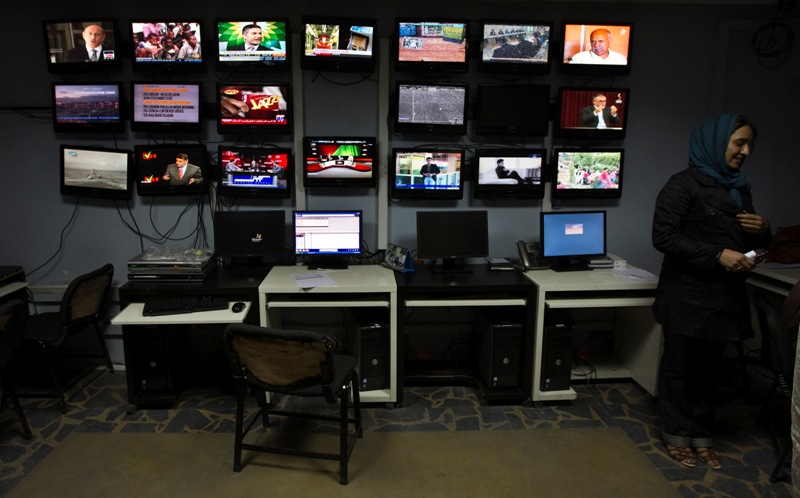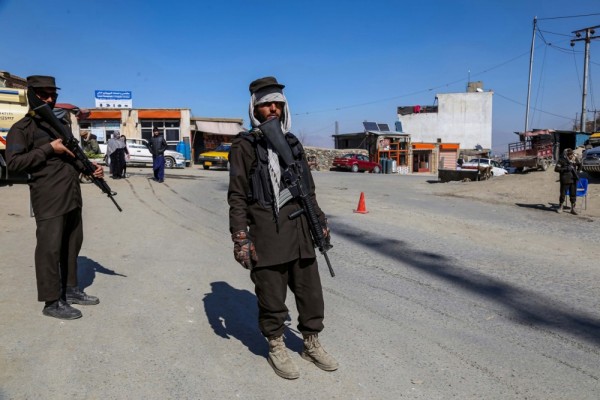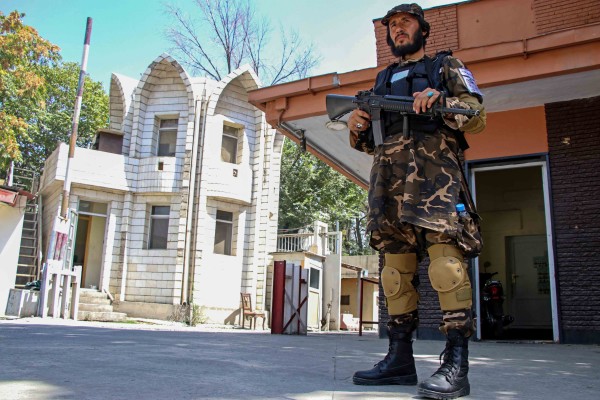The Afghan government needs to tighten security measures and provide full support to media outlets after the Taliban threatened two major television networks in the country with “elimination”, the International Press Institute (IPI) said today.
Amid a worsening situation for media since the fall of the embattled northern city of Kunduz in recent weeks, the Taliban on Monday released a statement targeting news outlets Tolo TV and 1TV.
According to the statement, the Taliban no longer recognises the channels as “media outlets”, but as “military targets”. The statement accused the stations, which have criticized the group, as being guilty of “disrespectful and hostile actions toward the Afghan Mujahid nation”.
It also argued that the move was a response to what the Taliban claims was fabricated coverage of women reportedly raped by Taliban members at a hostel in Kunduz.
The statement declared that “No employee, anchor, office, news team and reporter of these TV channels hold any immunity”, continuing: “Hereafter all the reporters and associates of these channels will be deemed enemy personnel, all of their centers, offices and dispatched teams will be considered military objectives which will be directly eliminated.”
Representatives of Afghanistan’s media community – including activists, unions and other support organisations – expressed concern yesterday in a joint statement. They emphasised that the threat was not limited to the two named television channels, but posed a threat to all of Afghanistan’s media family and to press freedom in the country.
They also called for a boycott on news of Taliban actions in the event that the group followed through on the threat or engaged in further intimidation.
“We believe the Afghan people expect the Afghan media not to bow to such threats and to continue on their mission of informing people based on journalism ethics,” the representatives said in the joint statement, adding: “Media organizations are not one of the warring sides, but civilian organizations. Whenever the Taliban or any other group has complaints, they can adopt peaceful means, because any attack on media and journalists is considered [a] war crime.”
Lotfullah Najafizada, the head of Tolo TV, told news agencies that the recent threat is the most serious assault on his network in its 14-year history. “It really took us by surprise,” he said.
The International Press Institute (IPI) today joined calls condemning the threat.
“The Taliban’s bid to silence coverage of its reported atrocities shows the vital need to support journalists working to expose those crimes,” IPI Director of Advocacy and Communications Steven M. Ellis said. “We stand with our brave colleagues and we urge Afghanistan’s government to take all available steps to protect them and ensure that they are able to report freely.”
According to reports, the Presidential Palace released a statement yesterday strongly condemning the Taliban’s threats and calling the group’s move anti-Islamic and unconstitutional. Noting the state’s duty to protect press freedom, the statement indicated that the government stood ready to protect its citizens and, in particular, the media.
Afghan Journalists Safety Committee (AJSC) said that since Kunduz fell to the Taliban, about a hundred journalists and media workers have been displaced to neighbouring provinces and to the capital, Kabul. The AJSC said the Taliban has began to search for journalists and media workers in order to punish them for allegedly being part of the propaganda machinery of the west and for imposing western ideals on the country that the Taliban claims destroy Afghanistan’s values and religious and cultural beliefs.
Other provinces still face the imminent threat of falling into the hands of the Taliban and the AJSC has warned international media support organisations to be prepared for a mass displacement of journalists and media workers.



